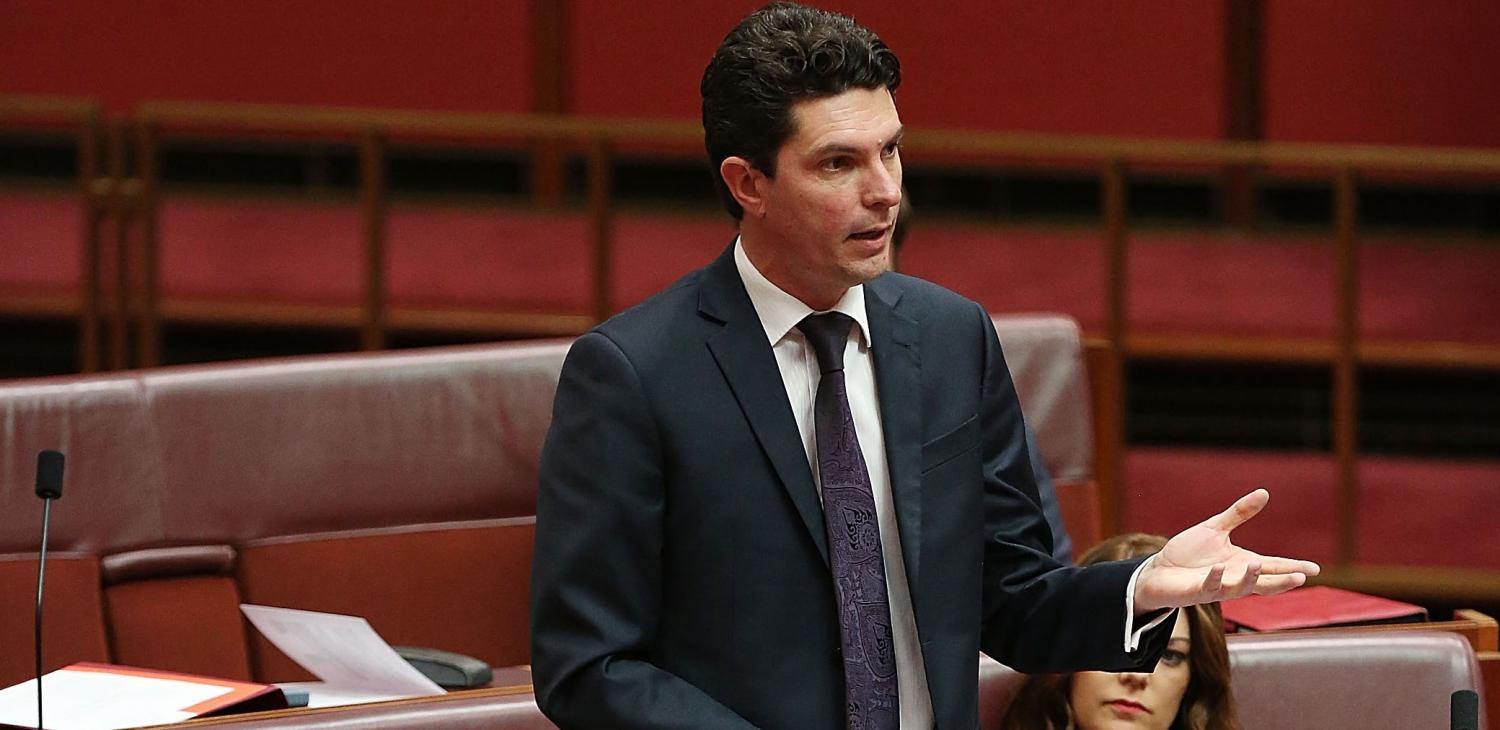The resignation of Greens senators Scott Ludlam and Larissa Waters this week has highlighted the role of Section 44 of the Constitution, which precludes dual citizens from running for parliament. Of course, one feels sorry for the senators in question – Waters left Canada before she was one year old, and Ludlam left New Zealand when he was three. But the rules, as they say, are the rules and you don't get a more final rule than the Constitution.
The resignations have resulted in a discussion as to the efficacy of requiring exclusive national identity for members of parliament. A 2010 parliamentary committee report has previously recommended that the relevant section be put to a referendum in order to make Australian citizenship an explicit requirement but leave the trickier issue of defining foreign allegiance to legislators. Seven years later, the Sydney Morning Herald's Adam Gartrell has signalled its opposition to the requirement for single nationality, calling it '..a relic of a bygone era, completely out-of-date and at odds with the multicultural melting pot that is modern Australia'.
I beg to differ and, in contrast to Gartrell, would praise the authors of the Constitution (although they probably didn't know it at the time) for being peculiarly far-sighted and equipping our legislature well for a multicultural society and a globalised world. Parliaments are unique institutions in that they are supposedly required to advance the national interest, not a national interest. And if a parliamentarian were to be a citizen of two countries, the real or perceived concern is that at some stage that parliamentarian, in whatever role they perform, would be required to place the national interests of one of their countries of citizenship over the other. Not only should they not be asked to do that, Australians should be confident that their politicians will never have to face that situation.
In my opinion, Gartrell has confused ethnicity with nationality. It is testament to Australia that we absorb hundreds of thousands of immigrants from a range of backgrounds who add to our collective good. But it is also a tough world out there, as states try to advance their interests in any way possible. Donations from individuals linked to the Chinese government with a view to influencing Australian policy cost Sam Dastyari his frontbench position, for instance. And Russian influencing operations are gathering increasing prominence in the West. It is a reality that states seek to influence outcomes in other states via nefarious ways to benefit their own interests. In these cases, it is foreign states seeking to influence the citizens of other countries – but how much more likely would it be that states would seek to influence their own citizens operating in other countries' parliaments?
In this environment, it is essential that Australia's politicians at least are focused on a single aim. Dual citizenship may well work for non-politicians – a second passport makes it easier for people to travel, work and do business, own property and invest throughout the world. But surely when one seeks to enter federal politics, there is only enough room in an individual's heart and mind for loyalty to one country. Australia's citizenry should demand nothing less. Advocates of removing the need for possessing only Australian citizenship point out the number of people in the population who hold dual citizenship and are thus ineligible to enter politics. The reality is that they are only ineligible for as long as they remain loyal to another country – simply renounce their other citizenship and they become eligible. If one feels too connected to another country to relinquish its citizenship, then perhaps they are not suited to focusing on advancing Australia's national interest – ditto if it's an inconvenience to ditch the second passport.
We cannot foresee what difficult decisions our politicians will be called upon to make in the future. But knowing that all of them are solely Australian citizens will at least mean that they are far less likely to be perceived to have divided loyalties on a subject, and the government of the day far less likely to be faced with uncomfortable accusations of duplicity when least needed.
Such accusations are not just the concerns of by cabinet or outer-ministry members – many backbenchers sit on Joint Parliamentary Committees, conduct reviews, represent parliament and perform many other functions. And, of course, ministers rise from the ranks of backbenchers, so it is absolutely essential that they act in the national interest of Australia at all times. If they have only one nationality they forego accusations of bias in all manner of public policy decision making of which they may be part during their term in parliament. Australia being a multicultural country does not obligate its parliament to be a multinational legislature.
Politics requires sacrifices on many levels. Requiring parliamentarians to only have one nationality is far less a sacrifice than many of the others we expect them to make. And if dual citizens feel so attached to another country that they wish to remain a citizen of it, that is fine. But it is perhaps an indication that they cannot be (or cannot be perceived to be) absolutely focused on the national interest of the country they seek to represent. Although written in a different age, Section 44 is likely to be even more pertinent in the future than it is today.

